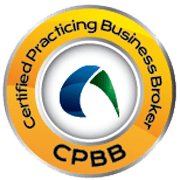Sell My Business FAQS
Find answers when you sell your businessQ. How do I know when I'm ready to sell my business?
If you are saying to yourself “I think it’s time to sell my business”, then it might be time and you are probably ready. However, your business may not be ready. How do you know when your business is ready? There are plenty of resources on this site showing you how to get your business ready for sale. The key thing is for you to ask yourself “If I were a buyer, would I buy my business?” you must look at your business through the eyes of a buyer.
Q. How much can I expect to get for my business?
Your business will sell usually at a price calculated on a multiple of its profits. If it has profits, the multiple used is between two and four times those profits. If there are no profits, aside from any special value it may have, it would be valued according to the value of its assets. Refer to the many resources on this site that will assist you in working out what your business is worth.
Q. What is a business appraisal?
A business appraisal is a type of business valuation, where a market assessment is made of the business. it usually involves an estimation of price, but not a full and formal valuation. it is an estimate of what the business might be sold for in a normal market.
Q. What do I need to send to my business broker to get started with the valuation?
We will provide you with a list of requirements once we have the business listed for sale. It will include all details about financial performance, as well as sales information to support some spreadsheets we will create for you. We will also give you a form with all the questions we need answered to be able to analyse and present your business case.
Q. Should I sell the shares of my business or some other asset?
It is up to you really. You may want to keep your company structure and only sell the assets of the business, not including the shares. There can be a taxation question here, so you should consult your accountant in this regard. Most of the time, a buyer doesn’t want to buy shares that come with the added risk of inheriting the liability potentially associated with those shares. The liability of the company survives the transaction so it can be a problem for the person inheriting the shares (company)
Q. How long should it take to sell my business?
The average time sell a business, according to our statistics, is six months. Obviously, some take a little longer than that and others sell within a shorter period. Larger businesses will generally take longer to sell because of the lengthy process in getting the business ready for sale, the longer negotiation phase and the due diligence and settlement phases.
Q. Does it matter when I sell my business?
A good time would probably be when you have your current financial year figures to hand. This would be July and onwards. However, that is not crucially important when you have a business that has a solid track record of consistent profits. In any event, we can carefully construct calendar year figures instead of financial year figures and rely on management accounts to fill in any gaps. There is other timing, however, that is more important. You want to be selling before the time you have to sell. You don’t want to be selling while under pressure or when you’ve run out of steam or when the business is in trouble. Also, you don’t want to be selling when your industry is about to die when the market is about to crash. See posts that we have written on this website about the importance of timing and cycles
Q. How old does my business have to be before I can put it up for sale?
There is no definitive answer for this, however we can offer you some guidelines.
When talking about selling a going concern business, you should offer your business for sale with a track record of sales and profit. That is normally a period of two years, to prove trading. At least it should be no shorter than one year, as that contains a full annual cycle. The longer the better of course. If it is earlier than two years, a buyer is going to be suspicious as to why you are selling a business so soon. Five years of trading will give a buyer even more confidence. And of course remember that a buyer is investing in the hope of future cashflows, so the history is only a guide, albeit a useful guide.
When talking about selling a going concern business, you should offer your business for sale with a track record of sales and profit. That is normally a period of two years, to prove trading. At least it should be no shorter than one year, as that contains a full annual cycle. The longer the better of course. If it is earlier than two years, a buyer is going to be suspicious as to why you are selling a business so soon. Five years of trading will give a buyer even more confidence. And of course remember that a buyer is investing in the hope of future cashflows, so the history is only a guide, albeit a useful guide.
Q. Who will handle all the inquiries on the sale of my business?
BCI will take and handle all inquiries. You will only meet qualified and serious buyers, ready to buy. There may be up to 100 people inquiring about your business, but you will probably only meet a few of those.
Q. What should I do or not do when I put the business on the market?
When you put your business on the market, you should trade it as normal. Don’t change anything. Try to maintain the profitability. You should pick the right time to tell your staff. There are other answers in this section to do with preparing your business for sale.
Q. How do I make my business more appealing to buyers?
There are many pages on this site devoted to preparing your business for sale. See here for instance. The main thing is to approach the preparation with this thought in mind. “What would a buyer want in my business?” The three things you need to focus on are profitability, maintainability and transferability of the profits of the business.
Q. Can I get more for my business because of its potential?
A buyer will not pay you for revenue that they are going to generate out of their own efforts and investment of money. In other words, they won’t pay for potential. There are two types of potential in a business and a buyer will only pay for one. The potential of the buyer won’t pay for is the potential to grow the business through the investment of money, time and hence risk. A buyer will however appreciate where there is latent potential in the business that has a great certainty of being capitalised on by the buyer with little or no extra investment of money or time. Whether a buyer will pay you for potential in your business will also depend on how keen they are on the business.
Q. How should I approach the period after the business is on the market and leading up to settlement of the sale?
You should operate on a “business as usual” basis. Run the business as though you were not selling. Don’t look to dramatically boost sales, sell out stock or do anything else that might upset a buyer. Whether you should tell your staff about the sale of the business is dealt with in another question on this page.
Q. When should I tell my employees that I am selling my business?
Again, this depends on the particular circumstances. Most business owners are afraid of telling the staff because they think that they might resign and leave them in a difficult position. You know your own employees and hence I often leave the decision to the business owner with this following guidance. If you’re fearful that the staff member might leave, it’s better to have that happen earlier rather than later so that you can adjust the staff roster or make changes as necessary. Usually, the staff will stick with you, showing loyalty.
Q. How many buyers am I likely to meet during the sale process?
BCI will screen all buyers so that you don’t have to meet an endless procession of people looking to buy your business. We can tell who is a genuine buyer for a business and will only introduce you to people who are firstly qualified by experience and secondly financially able to buy your business. You will only meet genuine buyers. You don’t want 20 people looking at your business, only the right people.
Q. How do we keep the sale secret from my staff and competitors?
BCI is very careful in who sees what information about your business and when. We are very discreet in contacting you and will only communicate via secure and private email and telephone numbers. We won’t identify who we are to any of your employees. Our advertisements will not identify the business unless that is your preference. We have an excellent track record for keeping secret what needs to be kept secret and for progressing inquiries in a discreet manner.
Is it easier or harder to sell a business in the country?
Get a Free Consultation
Our customers say
Member of












